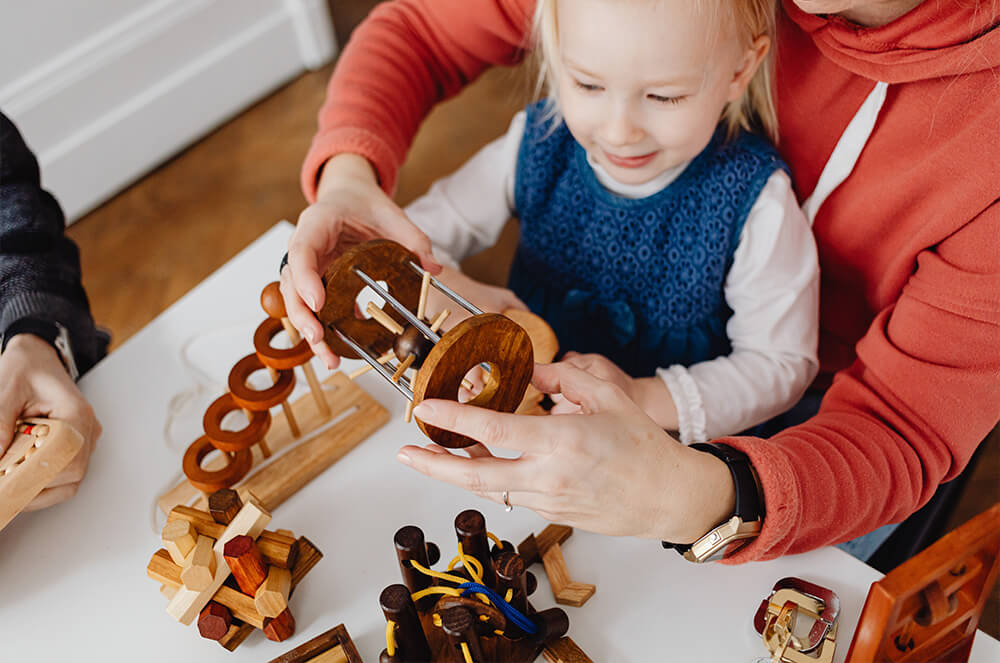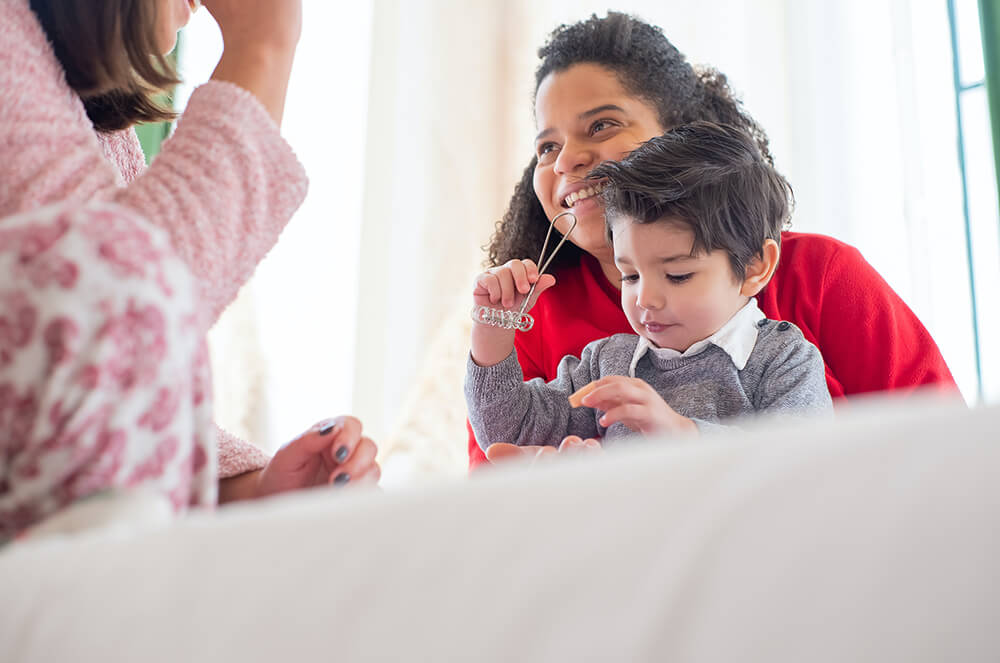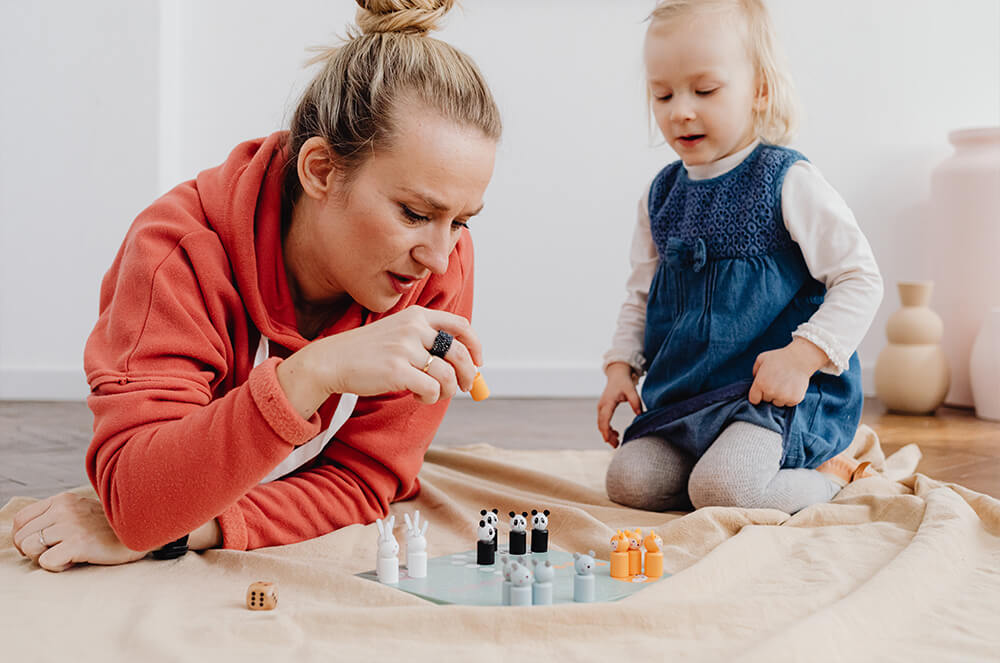The 6 P’s of Purposeful Parenting
Positive parenting leads to positive futures for generations to come.
American SPCC provides parenting education and support as the most effective way to support families and nurture children.
The following resources are made possible through contributions by child and family advocates like you.


What does it mean to be a purposeful parent?
It might sound simple. Or perhaps too complex or daunting.
But just like with anything in parenting, a bit of knowledge and effort can go a long way towards creating healthier relationships and deeper bonds with the children in your life.
Of course, “perfect” isn’t one of these “P’s.” Instead, these “6 P’s of Purposeful Parenting” coined by the American Academy of Pediatrics focus on different ways you can be intentional about the way you communicate and support your child.
What are the 6 P’s of Purposeful Parenting?
Purposeful
Set long-term parenting goals in a notebook or in a document, and check back on them periodically. (And if you have a partner or co-parent, consider getting them involved too). Try to discover the purpose behind your child’s behavior as a way to help them grow their problem-solving skills and confidence. Also try to learn from your own reactions and behaviors, especially during difficult situations. Consider what may be causing them and how you might approach a similar situation in the future.
Protective
Make sure your child’s basic needs are met: food, shelter, sleep, and support. Let your child know you are available to talk through their concerns and questions. Continue building trust by talking about difficult emotions and situations when they arise.
Personal
Make it a priority to show your child unconditional love and acceptance. Be gentle and kind when communicating. Get down to their level or look them in the eye to let them know you’re listening and engaged. Give them hugs and let them know why it is you love their unique personality.
PROGRESSIVE
As your child grows and changes, so will your approach to parenting. Of course, love, support, and an open mind will always be important, but your strategies will shift as your child gets older and your relationship evolves. Be willing to learn new skills and abandon those that aren’t helpful. Try to understand and respond to the unique needs of the child in front of you.
Positive
Weave positivity and love into the way you communicate with your child and those around you. Try to look at meltdowns, disagreements, and setbacks as learning and growth opportunities. Point out your child’s efforts and small accomplishments. Spend time focusing on the beauty and positivity in the world around you, while recognizing that sadness, anger, and frustration are normal feelings too.
Playful
Kids of any age often appreciate and learn from a playful parent. Whether it’s a sports activity, a board game, a craft, or an interesting moment throughout the day, try to make time to smile and laugh with your child. Encourage their own playfulness and ways they can be creative.
Caregiver Tips for Using Purposeful Parenting

Stay Consistent
Consider trying one or two new strategies at a time. When you feel like they’ve become a part of your routine, consider adding in another purposeful parenting strategy. Eventually, these tactics should feel natural and consistent in your everyday life.
Give Your Child A Voice
Purposeful parenting calls on caregivers to recognize and empathize with their child’s point of view. Try to take pauses and get a better understanding of your child’s perspective, especially when they’re upset or sad. Ask open-ended questions and let them know you value their thoughts and ideas.
Know that using new parenting strategies is tough work
This work can be especially difficult if a parent or caregiver is implementing strategies that are vastly different than those they experienced as a child. If an adult experienced trauma or Adverse Childhood Experiences in their youth, having the ability to practice gentle, positive, and purposeful parenting can be even more challenging. But know that these strategies, even when they’re not always perfect, have long-lasting, positive impacts on growing children.
Remember that no parent is perfect
Again, this can be tough work. When the time calls for it, be open with your child about why a situation turned out negatively. Don’t be afraid to apologize for actions that go against your purposeful parenting principles. Modeling this type of behavior in front of your child also helps them learn how to treat others during difficult circumstances too.
Take Care of Yourself
Just as you work to take good care of your child, make sure you are also doing so for yourself. Setting aside time for activities that bring you joy and energy can help provide the foundation you need to be more present and patient as a parent. Being physically active or spending time with friends can be some of the simple ways to bring more happiness and personal satisfaction into your busy life as a parent.
Seek help when you need it
Parenting can be tough work. Tack on other challenges that are bound to come up in life, and the pressure can seem insurmountable at times. Talking about your experiences with a therapist, a supportive group, or a trusted friend can have incredible benefits. There’s a reason they say “it takes a village to raise a child.” No single person can be a perfect parent, and calling on your village can make all the difference.

Purposeful parenting is all about being intentional and empathetic in how parents and caregivers communicate and raise their children.
It’s not about meeting all of the attributes above 100 percent of the time. Just as they offer their children empathy and grace, it’s important that purposeful parents extend these qualities to themselves too.
At the end of the day, concepts like these can help parents and caregivers think critically about how their relationships can play an important role in their child’s ongoing development. Because when we know more, we can do more.
Resources like these are provided by American SPCC – a national nonprofit dedicated to building positive childhoods for all children by empowering parents and caregivers with research-backed education and support.
This work is made possible by passionate donors and community advocates. Learn how you can get involved and support the mission here.
Previous Section
